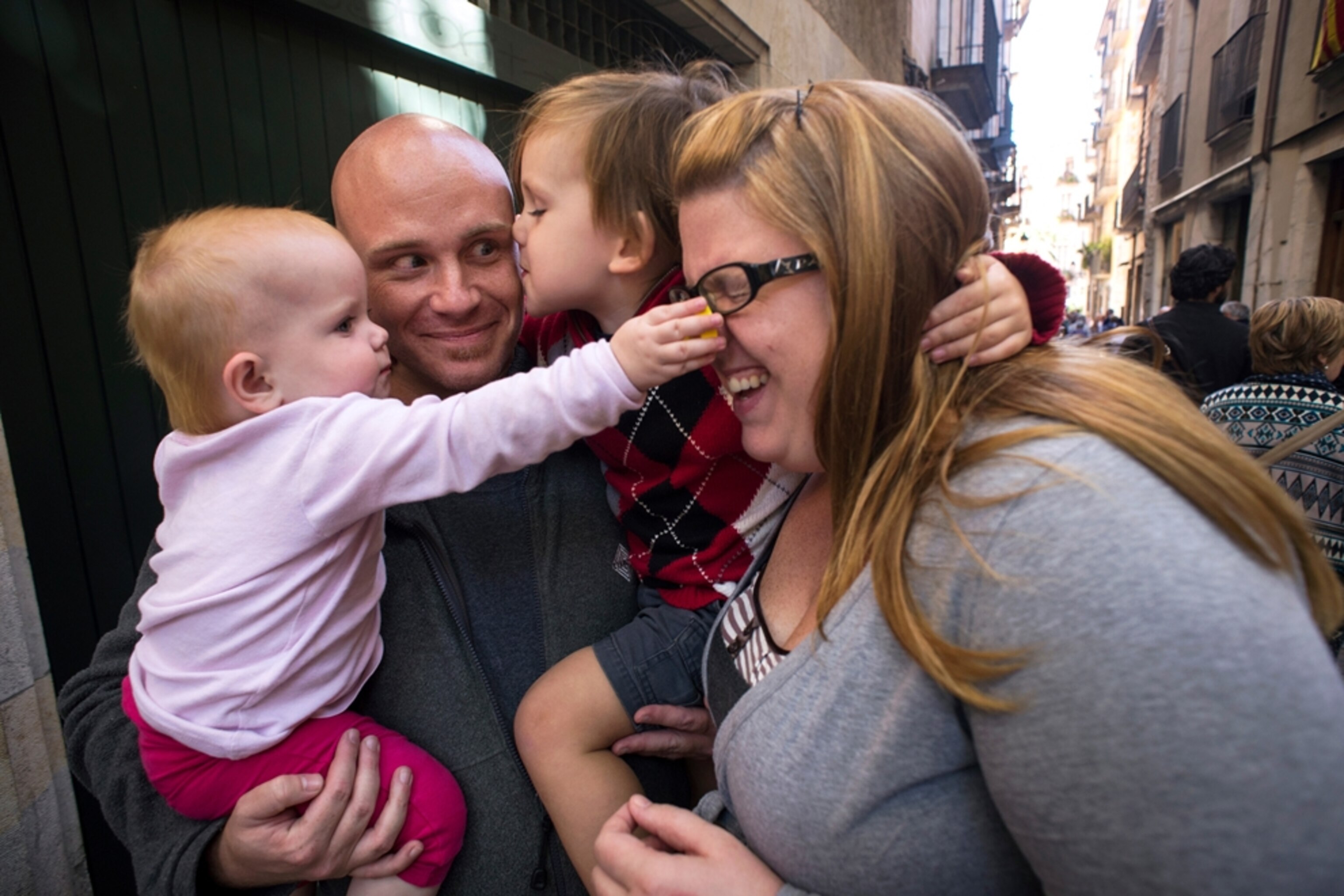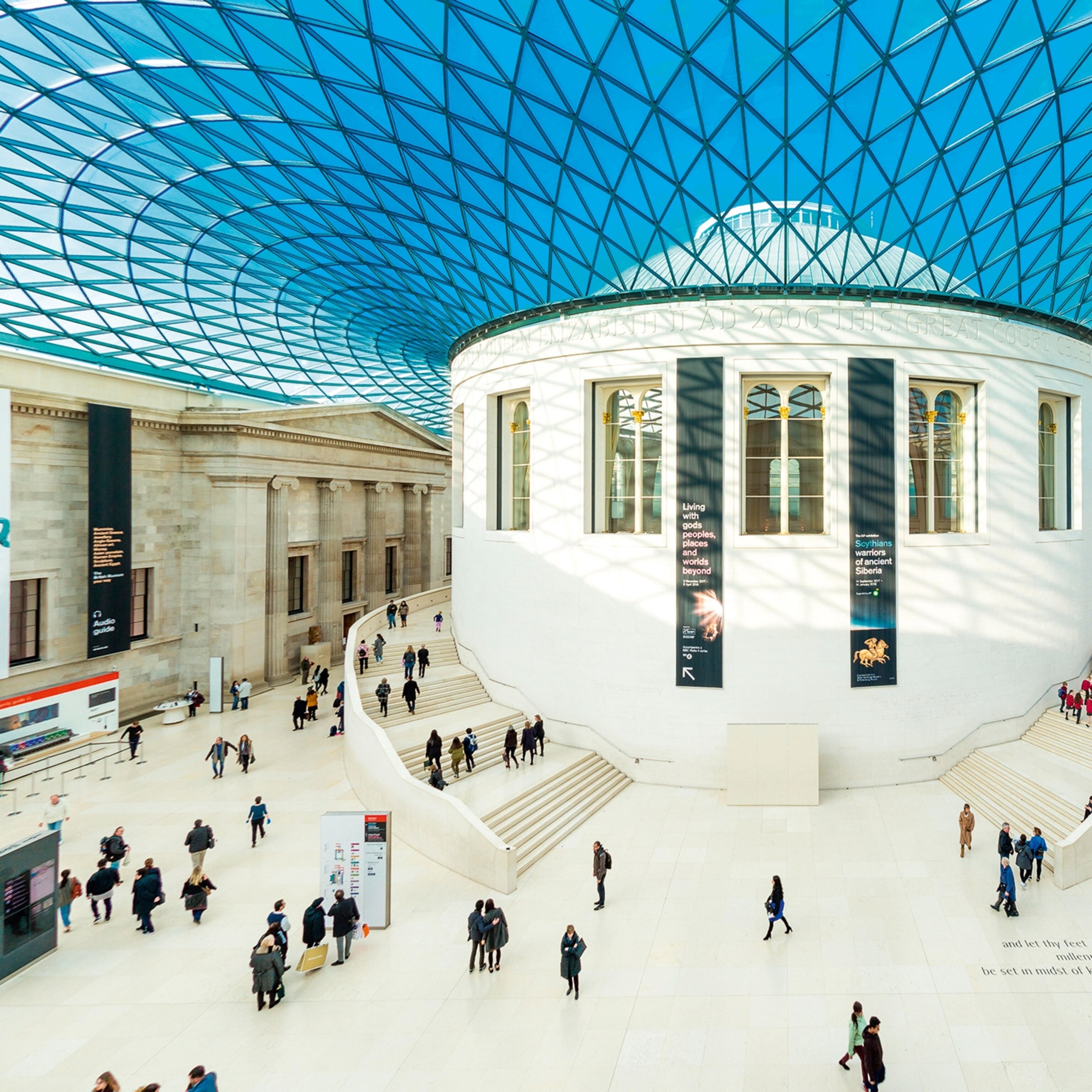
Travelers of the Year: The Gilbert Family
Lost & Found—A fearlessly familial road-ready bunch
At Home Everywhere, Blogging With the Kids
"Travel is the art of being present,” says Christine Gilbert, who, along with her husband, Drew, has been on the go since 2008. That’s a long time on the road—long enough for the troupers to add a son (Cole, 4) and daughter (Stella, 20 months) to their tribe. Since turning to travel as an antidote to their former Boston-based workaday worlds, the family has practiced presence in some 38 places, including China, Costa Rica, and Morocco.
“There’s this idea that traveling is something you have to do before you have kids, but there are huge benefits to doing it after you have kids, too,” says Christine. On the heels of a two-year “experiment in language learning” on Mexico’s Pacific coast (“we’ve tackled Mandarin, Arabic, and Spanish,” she says), the family spent the summer biking 2,500 miles across Europe before temporarily settling into Barcelona.
“Since I’ve had children, that sense of seeing the world has become even more important,” says Christine. “I don’t just want to raise my children to be global citizens, to know a culture other than their own. I also want to pass on the gift of being aware of the world, of appreciating the beautiful, messy, strange wonder of this inexplicable planet and the curious humans who inhabit it.”
Embracing life on a global scale costs money. Drew is a commercial artist, and Christine is a writer (almostfearless.com). Their Wi-Fi–enabled careers inspired their new project, The Wireless Generation, a documentary film about people who have quit their jobs and turned to travel.
—By George W. Stone
THE INTERVIEW
National Geographic Traveler: Are there perils to being a traveling parent?
Christine Gilbert: It's not easy being a parent anywhere. But travel doesn't make it harder; in fact, I think it’s easier to be a parent on the road than it would be to have my kids in day care, commute to work, and have set schedules and limited time together. And kids are naturally good travelers. They love novelty, they want your attention and your time, they enjoy walking around and exploring the world—touching everything, noticing all the details. We saw an immediate shift after having our son—locals talked to us more, we got invited into their homes, people engaged with us. It completely opened up the world for us.
NGT: What do kids take away from a global upbringing?
CG: I want my kids to have more of a sense of being part of a larger global community than thinking of the world as us and them. I want them to have compassion for all human beings, even if they don't agree with their politics or religion or culture. It’s really important to me that my children grow up aware of not just the privilege they inherited by the country on their passport, but their responsibility to make sure that people everywhere increasingly have the same kinds of opportunities.
NGT: What have you learned from your travels?
CG: I’ve learned two big things. First, I’ve been confronted with my own abilities and limitations. I’ve learned how to be resourceful and how to lean into discomfort and forge ahead. I’ve also learned that I am flawed. I get frustrated when learning a new language, I long for comfort (even if it’s just a hot shower) no matter how long I travel or how far from home I am, and even though I’ve met people around the globe, I can be a little shy. That’s the one lesson of travel: you can’t hide from yourself. It all shakes out in the end.
The second big lesson, the lesson of my life, really, is a sense of connection with other human beings. I was sitting in an Internet café in Bali and a pregnant woman was talking to me about giving birth. My son was just ten months old at that time, and this young woman was nervous. She proudly told me that she had been avoiding cold water, ice, and chocolate the entire pregnancy—and it hit me how these little rituals, the cultural things we do, are so important.
It gives us a sense of control over the uncontrollable. It’s these little moments that make you realize how, beyond cultural and language differences, we’re all just humans. We all want the best things for our children, we have similar fears and desires, we grieve, we love, we laugh, and the rest is just details. The more I travel, the more I learn to look beyond the cultural stories we tell ourselves that make us seem so different and to look for the shared human experience beneath it all.
NGT: Tell us about your documentary, The Wireless Generation.
CG: I never traveled as a kid. My first time abroad was when I was 26, on my honeymoon in Europe, and I spent the next five years figuring out how I could travel full time. I had a dream job in Boston, but I felt restless and needed a complete life reboot. So I bought a camera, sold our stuff, and we hit the road for a few years with two dogs, laptops, and enough camera gear to make your average TSA agent break into a sweat.
As we traveled we met so many people who were doing things I had never thought of. There was a psychology professor teaching at a university in Washington State from his home in Thailand. There was an ex-Army guy who invested his savings and played the stock market to raise just enough to keep his travels going every month. We met dozens of people traveling around the U.S. in RVs—people in their 20s and 30s who worked online. So we decided to film a documentary about people who were working while traveling. I wanted to tell these stories for other people, like me, who wanted to travel long-term but didn’t know how to connect the dots.
NGT: What did you discover?
CG: As the documentary filming progressed, what I found was far more interesting than the logistics of getting good Wi-Fi. It was about the way travel changed people’s lives. The simple shift from focusing on money and career to focusing on free time and how you spend it was profound. I think that’s the reason you travel: it’s the introvert who becomes more outgoing by learning salsa in Colombia. It’s the family that finds meaning by volunteering with Burmese refugees. It’s finding community in the strangest of places. It’s about investing your time, your most valuable asset, in the things you love.
NGT: What’s your best practical travel advice?
CG: Pack light. Clothes can be washed, toiletries purchased, and everything else you don't need. I overpacked for years, and now that we keep our entire family down to just one suitcase, we not only don't miss the things we left behind, traveling feels so much easier now.
NGT: What's on your travel wish list?
CG: I want to take photos of Iceland, bike the fjords in Norway, eat my way around Japan, and take my kids to the Galápagos when they're old enough.
NGT: What does it mean to travel with passion and purpose?
CG: I’ve been traveling for six years but I’m still looking for ways to push myself, to find challenges that inspire me, to make my life something I’m really excited about. It’s an ongoing process, figuring out what gives your life passion and purpose, what makes it meaningful. It changes constantly. I’m addicted to that feeling.
>> Next: The Beauty of the Beast
You May Also Like
Go Further
Animals
- How can we protect grizzlies from their biggest threat—trains?How can we protect grizzlies from their biggest threat—trains?
- This ‘saber-toothed’ salmon wasn’t quite what we thoughtThis ‘saber-toothed’ salmon wasn’t quite what we thought
- Why this rhino-zebra friendship makes perfect senseWhy this rhino-zebra friendship makes perfect sense
- When did bioluminescence evolve? It’s older than we thought.When did bioluminescence evolve? It’s older than we thought.
- Soy, skim … spider. Are any of these technically milk?Soy, skim … spider. Are any of these technically milk?
Environment
- Are the Great Lakes the key to solving America’s emissions conundrum?Are the Great Lakes the key to solving America’s emissions conundrum?
- The world’s historic sites face climate change. Can Petra lead the way?The world’s historic sites face climate change. Can Petra lead the way?
- This pristine piece of the Amazon shows nature’s resilienceThis pristine piece of the Amazon shows nature’s resilience
- Listen to 30 years of climate change transformed into haunting musicListen to 30 years of climate change transformed into haunting music
History & Culture
- Meet the original members of the tortured poets departmentMeet the original members of the tortured poets department
- Séances at the White House? Why these first ladies turned to the occultSéances at the White House? Why these first ladies turned to the occult
- Gambling is everywhere now. When is that a problem?Gambling is everywhere now. When is that a problem?
- Beauty is pain—at least it was in 17th-century SpainBeauty is pain—at least it was in 17th-century Spain
Science
- Here's how astronomers found one of the rarest phenomenons in spaceHere's how astronomers found one of the rarest phenomenons in space
- Not an extrovert or introvert? There’s a word for that.Not an extrovert or introvert? There’s a word for that.
- NASA has a plan to clean up space junk—but is going green enough?NASA has a plan to clean up space junk—but is going green enough?
- Soy, skim … spider. Are any of these technically milk?Soy, skim … spider. Are any of these technically milk?
Travel
- This tomb diver was among the first to swim beneath a pyraamidThis tomb diver was among the first to swim beneath a pyraamid
- Dina Macki on Omani cuisine and Zanzibari flavoursDina Macki on Omani cuisine and Zanzibari flavours
- How to see Mexico's Baja California beyond the beachesHow to see Mexico's Baja California beyond the beaches
- Could Mexico's Chepe Express be the ultimate slow rail adventure?Could Mexico's Chepe Express be the ultimate slow rail adventure?






